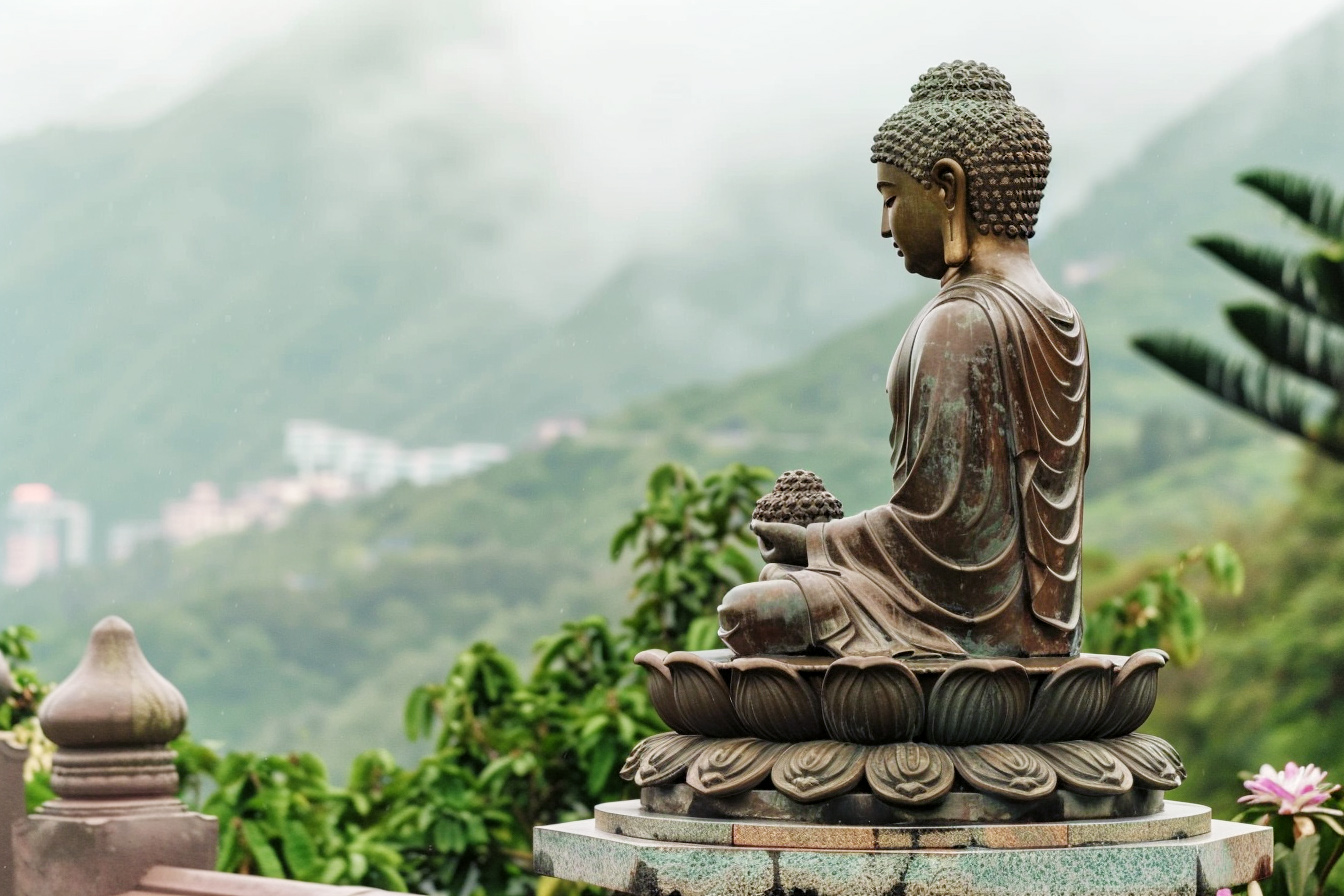Buddhism, an ancient philosophy and religion, has captivated people worldwide with its profound insights into the nature of life and the path to inner peace. At the core of Buddhist teachings lie fundamental truths that, when understood and embraced, can transform how we perceive ourselves and the world around us. These truths may seem brutal initially, but they are crucial to unlocking a more fulfilling and meaningful existence. This article will explore five such truths and how they can help you become a better person.
1. Life is Suffering (Dukkha)
The first brutal truth Buddhism teaches us is that life is suffering, or Dukkha. This doesn’t mean that life is entirely miserable, but rather that suffering is an inherent part of the human experience. We all face challenges, disappointments, and losses throughout our lives. By acknowledging and accepting this truth, we can develop a more realistic outlook and cultivate resilience in adversity.
When we understand that suffering is a shared human experience, we can approach others with greater empathy and compassion. We recognize that everyone is fighting their own battles, and this understanding fosters a sense of connection and community. By embracing the truth of Dukkha, we can learn to navigate life’s ups and downs with poise and grace.
2. Change is Constant (Anicca)
The second brutal truth in Buddhism is that change is constant, or Anicca. Everything in life is impermanent, from our relationships and possessions to our thoughts and emotions. When we become attached to the idea that things will remain the same, we set ourselves up for disappointment and suffering.
Embracing the truth of Anicca allows us to live in the present moment and appreciate the beauty of life’s fleeting nature. We learn to let go of attachments and expectations, understanding that everything is constantly in flux. This mindset helps us adapt to change more quickly and find joy in the simple things, knowing they won’t last forever.
3. The Illusion of Self (Anatta)
The third brutal truth is the illusion of self or Anatta. Buddhism teaches that our sense of self is a construct of the mind and that clinging to this ego-driven identity is a source of suffering. When we become too attached to our self-image, we create unnecessary boundaries between ourselves and others, leading to isolation and disconnection.
By recognizing the truth of Anatta, we can begin to let go of the ego and embrace the interconnectedness of all things. We realize that we are part of a greater whole and that our actions have a ripple effect on the world around us. This understanding cultivates a sense of humility, compassion, and responsibility towards others.
4. Actions Have Consequences (Karma)
The fourth brutal truth in Buddhism is that our actions have consequences or Karma. Every word and deed shapes our reality and future experiences. When we engage in harmful actions, we create suffering for ourselves and others. Conversely, we generate positive outcomes when we cultivate positive thoughts and actions.
Taking responsibility for our actions is a decisive step towards personal growth and transformation. By being mindful of the consequences of our choices, we can make more skillful decisions that align with our values and contribute to the well-being of ourselves and others. Understanding Karma encourages us to live with integrity and compassion, knowing that our actions have a lasting impact.
5. Enlightenment is Possible (Nirvana)
The fifth and final brutal truth is that enlightenment, or Nirvana, is possible. Despite the challenges and suffering we face in life, Buddhism teaches that there is a path to liberation and inner peace. By cultivating mindfulness, compassion, and wisdom, we can break free from the cycle of suffering and attain lasting happiness.
Embracing the truth of Nirvana gives us hope and direction in our spiritual journey. It reminds us that no matter how difficult life may seem, there is always the potential for transformation and growth. By dedicating ourselves to the path of self-discovery and personal development, we can unlock our full potential and find true fulfillment.
Key Takeaways
- Buddhism teaches five brutal truths about life to help you become a better person.
- Life is suffering (Dukkha): Suffering is an inherent part of the human experience, and accepting this truth can lead to greater resilience and empathy.
- Change is constant (Anicca): Everything in life is impermanent, and embracing this truth allows us to live in the present moment and adapt to change more quickly.
- The illusion of self (Anatta): Our sense of self is a construct of the mind, and letting go of the ego can help us embrace the interconnectedness of all things.
- Actions have consequences (Karma): Every thought, word, and deed shapes our reality and future experiences, encouraging us to live with integrity and compassion.
- Enlightenment is possible (Nirvana): Despite life’s challenges, there is a path to liberation and inner peace through the cultivation of mindfulness, compassion, and wisdom.
- Embracing these brutal truths can lead to personal growth, a more grounded approach to life, and a greater sense of fulfillment.
- Integrating Buddhist teachings into daily life is a lifelong journey that can contribute to creating a more compassionate and harmonious world.
Conclusion
The five brutal truths of Buddhism – Dukkha, Anicca, Anatta, Karma, and Nirvana – offer profound insights into the nature of life and the human experience. By embracing these truths, we can cultivate a more grounded, compassionate, and resilient approach to life’s challenges. We learn to accept the reality of suffering, embrace change, let go of the ego, take responsibility for our actions, and strive toward inner peace.
Integrating these teachings into our daily lives is a lifelong journey that can lead to tremendous personal growth and transformation. As we navigate the ups and downs of life, these brutal truths serve as a compass, guiding us toward a more authentic and fulfilling existence. By embodying Buddhism’s wisdom, we become better people and contribute to creating a more compassionate and harmonious world.
